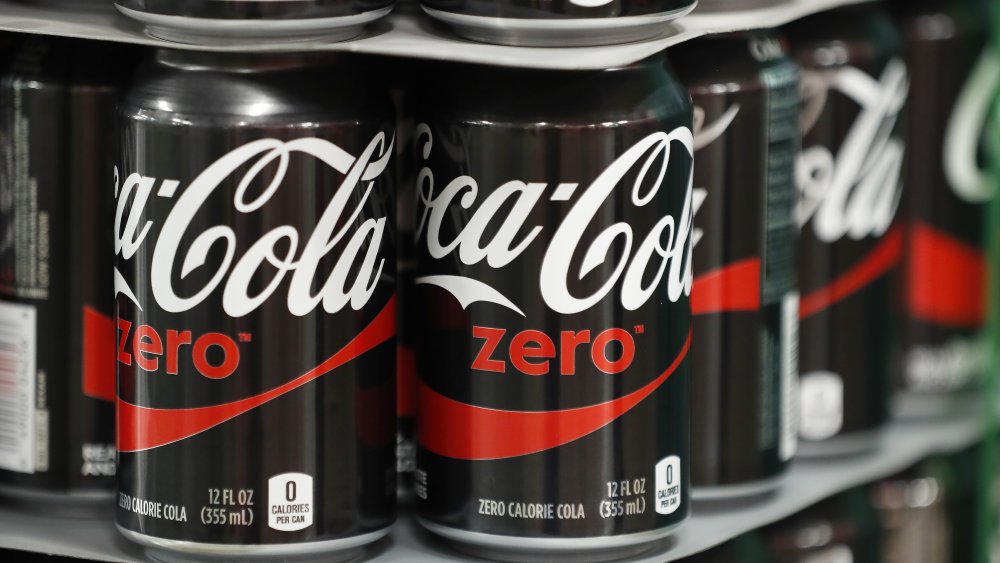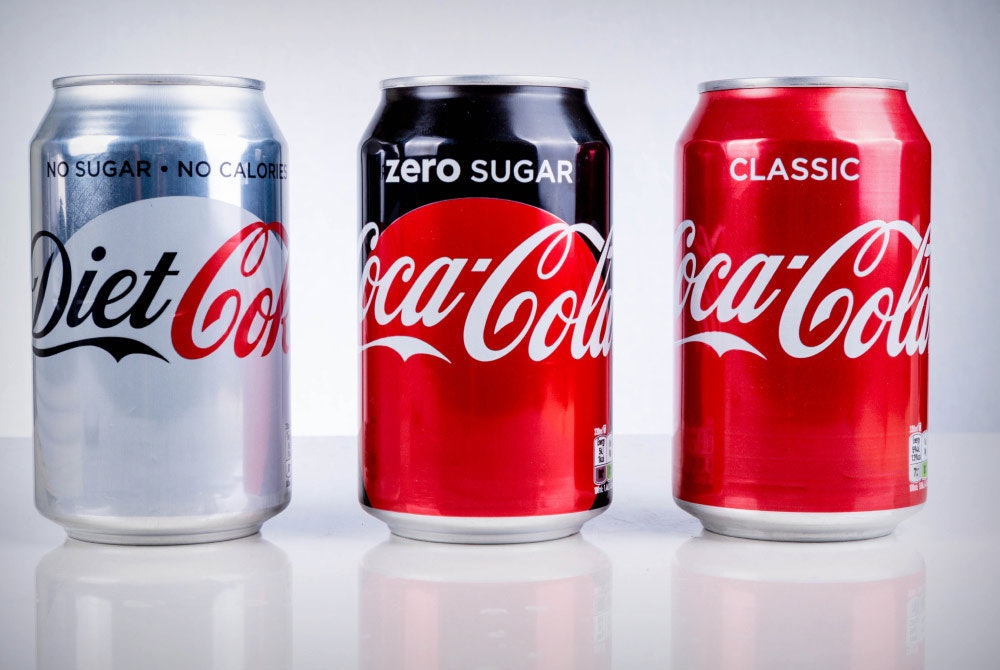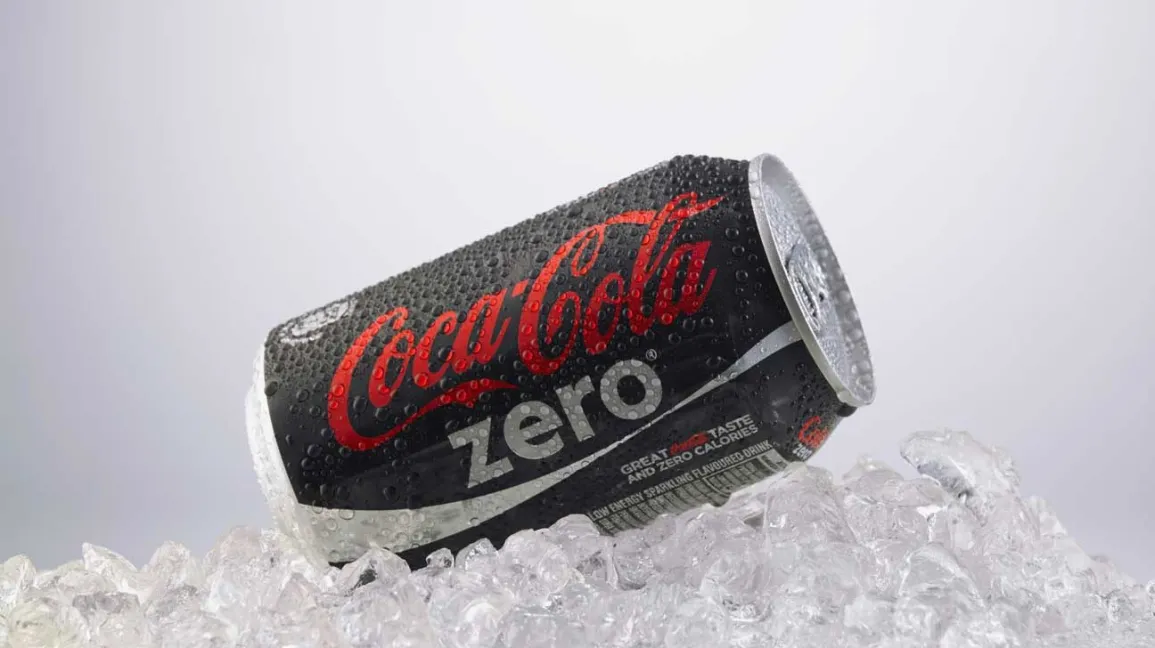Yes, Coke Zero can potentially be bad for your teeth. While Coke Zero is sugar-free, it is acidic, primarily due to the presence of phosphoric acid. The acidity in it can contribute to enamel erosion, making your teeth more vulnerable to issues like sensitivity, discoloration, and decay.
To minimize the potential impact on your dental health, it’s advisable to consume Coke Zero in moderation, practice good oral hygiene, and consider alternatives that are less acidic.
Additionally, rinsing your mouth with water after consuming acidic beverages can help dilute the acids and reduce their effects on your teeth. Regular dental check-ups are also important for monitoring and maintaining your oral health.
Here, you will see the impact and tips for preserving a healthy and vibrant smile.
Composition of Coke Zero

Coke Zero is a sugar-free soft drink that aims to provide a low-calorie alternative to traditional sugary sodas. Its composition is carefully crafted to mimic the taste of regular Coca-Cola while eliminating the caloric content associated with sugar
- Carbonated Water:
- The base of it is carbonated water, which gives the drink its effervescence. This component provides the familiar fizziness found in many carbonated beverages.
- Artificial Sweeteners:
- Coke Zero relies on artificial sweeteners to impart sweetness without the addition of sugar and calories. Common artificial sweeteners in it include aspartame and acesulfame potassium. These sweeteners are many times sweeter than sugar, allowing for the desired sweetness without the caloric impact.
- Phosphoric Acid:
- Phosphoric acid is added for flavor enhancement and to provide a tangy taste. However, it’s important to note that phosphoric acid contributes to the overall acidity of the beverage, which can have implications for dental health.
- Caramel Color:
- It contains caramel color, a common food and beverage additive used to give the drink its characteristic brown hue. It is purely for aesthetic purposes and doesn’t significantly impact the taste.
- Natural Flavors:
- Natural flavors are included to replicate the taste profile of traditional Coca-Cola. These flavors are a proprietary blend, and the exact combination is a closely guarded secret.
- Preservatives and Stabilizers:
- Various preservatives and stabilizers are included to extend the shelf life of the product and maintain its quality over time. These ingredients help prevent spoilage and maintain the intended flavor profile.
Understanding the Acidic Nature of Coke Zero
| Aspect | Information |
| Phosphoric Acid Content | – Phosphoric acid is a significant contributor to the acidity of it. – Added for flavor enhancement, it imparts a tangy taste to the beverage. |
| pH Levels | – It has a relatively low pH, typically ranging from 2.5 to 3.5. – Lower pH values indicate higher acidity. |
| Impact on Tooth Enamel | – Acidity in Coke Zero, combined with carbonation, can contribute to enamel erosion. – Weakened enamel may lead to tooth sensitivity and increased susceptibility to cavities. |
| Comparison with Other Beverages | – While acidity varies among beverages, many carbonated drinks, including diet sodas, tend to be acidic. |
| Dental Health Considerations | – Dental professionals advise minimizing acidic drink consumption and maintaining good oral hygiene. – Using straws, reducing contact time, and thorough oral care can help. |
| Individual Sensitivity | – Individuals may vary in sensitivity to acidity. – Factors like diet, oral hygiene, and genetics influence how it’s acidity affects dental health. |
Effects on Dental Health
Here are key considerations regarding the impact of Coke Zero on dental health:
- Enamel Erosion:
- Its acidic nature, primarily due to phosphoric acid, can contribute to enamel erosion. Enamel is the protective outer layer of the teeth. Continuous exposure to acidic substances, even in the absence of sugar, can weaken the enamel over time, making the teeth more susceptible to sensitivity, discoloration, and decay.
- Tooth Decay:
- While Coke Zero is sugar-free, its acidity can still play a role in tooth decay. Acidic environments promote the growth of bacteria that contribute to cavities. Additionally, the erosive effects on enamel may create an environment where bacteria can more easily penetrate the tooth structure.
- Role of Artificial Sweeteners:
- Further, it replaces sugar with artificial sweeteners like aspartame and acesulfame potassium. While these sweeteners do not contribute to tooth decay directly, they can impact oral health indirectly. Some studies suggest that artificial sweeteners may alter the oral microbiome, potentially affecting the balance of bacteria in the mouth.
- Oral Hygiene Importance:
- Maintaining good oral hygiene practices is crucial for individuals who consume Coke Zero or similar acidic beverages. Regular brushing, flossing, and the use of fluoride-containing toothpaste can help mitigate the effects of acidity and reduce the risk of dental issues.
- Frequency of Consumption:
- The frequency of it consumption is a critical factor in its impact on dental health. Sipping on acidic beverages throughout the day can prolong the exposure of teeth to acidity, increasing the risk of enamel erosion. It is generally recommended to consume such beverages in moderation and avoid prolonged exposure.
- Overall Dietary Habits:
-
- Dental health is not solely determined by one’s beverage choices. The overall diet, including the consumption of other acidic foods and beverages, plays a role in oral health. A balanced diet that includes a variety of nutrient-rich foods can contribute to overall well-being, including dental health.
Other Things to Know: Possible Issues with Coke Zero
Some studies suggest that drinks like Coke Zero might be linked to heart issues, especially in women who haven’t had heart problems before.
Too much diet soda, with its high phosphorus, could be tough on your kidneys. One study found that people who drank a lot of diet soda had a higher chance of kidney issues.
Coke Zero might mess with the good bacteria in your belly, and this could affect how your body manages sugar. More research is needed to be sure about this.
Drinking cola every day might make your bones less strong. This goes for diet cola too. A study found that daily cola drinkers had weaker bones.
Alternative Beverage Options
| Beverage | Key Features |
| Water | – Healthiest and neutral beverage – Maintains hydration – Supports bodily functions – No negative impact on dental health – Can be infused with citrus fruits or herbs for natural flavors |
| Herbal Teas | – Caffeine-free – Often non-acidic – Enjoyable hot or cold – Variety of flavors without concerns associated with acidic sodas |
| Green Tea | – Low-calorie – Potential health benefits (antioxidants) – Milder acidity compared to sodas – Note: Contains some acidity |
| Milk | – Excellent source of calcium – Strengthens teeth and bones – Opt for low-fat or non-fat options for a healthier choice |
| Coconut Water | – Natural and hydrating – Slightly sweet taste – Contains electrolytes – Refreshing choice, especially for those reducing acidic beverage consumption |
| Sparkling Water | – Carbonated water without added sugars or acids – Bubbly alternative to sodas – Fizzy sensation without dental health risks |
| Fruit Infusions | – Create flavored water with fruits, vegetables, or herbs – Natural sweetness and flavor without added sugars or artificial sweeteners |
| Vegetable Juices | – Freshly squeezed, providing nutrients – Lower sugar content compared to some fruit juices – Be mindful of overall sugar content and acidity |
| Iced Herbal/Fruit Tea | – Brew herbal or fruit teas and chill for a refreshing, non-acidic iced tea – Avoids the acidity associated with traditional sodas |
| Homemade Smoothies | – Blend a variety of fruits, vegetables, and a liquid base (yogurt or milk) – Customizable and allows control over ingredients |
Tips for Dental Health When Drinking Coke Zero

- Limit how much Coke Zero you drink. Smaller amounts reduce the time your teeth are exposed to its acidity.
- Try to finish it in one go instead of sipping it slowly. This minimizes the time the drink affects your teeth.
- Drink it through a straw to minimize direct contact with your teeth, lessening the impact on enamel.
- Brush your teeth at least twice daily with fluoride toothpaste and floss regularly to keep your teeth clean and strong.
- Choose a toothpaste with fluoride to strengthen your teeth and protect them from the acid in Coke Zero.
- Schedule regular dental check-ups to catch and address any issues early on. Your dentist can offer personalized advice.
- Balance the intake with water. Water neutralizes acids and promotes saliva production for better oral health.
- Pay attention to your overall diet. A well-balanced diet, low in acidic foods, supports both your overall health and dental health.
- Chew sugar-free gum, especially with xylitol, to stimulate saliva production, neutralizing acids and promoting tooth enamel remineralization.
- Stay informed about the effects of it on dental health. Knowledge empowers you to make informed decisions about your oral health.
FAQ’s
Does Coke Zero still damage teeth?
Yes, similar to regular soda, Coke Zero’s phosphoric acid can lead to mild enamel and tooth erosion, posing a risk to dental health.
Is it OK to drink Coke Zero every day?
Yes, Drinking a reasonable amount, like a can or two, isn’t likely to harm you. The artificial sweeteners in diet soda are generally considered safe, with no credible evidence of causing cancer.
How can I drink Coke without damaging my teeth?
Limit consumption to 12 oz., use a straw to minimize contact with teeth, avoid sipping throughout the day, and rinse your mouth with water afterward.
Will Coke Zero stain your teeth?
Yes, clear beverages, including Coke Zero, can cause dental staining over time due to their acidic content.
Is Coke Zero actually 0 calories?
Yes, Coke Zero is sweetened with aspartame and acesulfame potassium, creating a great taste with zero sugar and zero calories.
What drinks are OK for teeth?
Water, low-sugar vegetable juices, milk, tea, and real fruit juice are among the drinks that do not harm teeth significantly.
Is Coke Zero truly healthy?
No, While Coke Zero is sugar-free, its artificial sweeteners may not be a healthier option, as studies associate them with an increased risk of type 2 diabetes.
Is 2 Coke Zeros a day bad?
No, Drinking a moderate amount, like a can or two, is generally considered safe, with no credible evidence suggesting harm from the artificial sweeteners.
Is Coke Zero really sugar-free?
Yes, Coke Zero is sweetened with aspartame and acesulfame potassium, providing a sweet taste without sugar and calories.
Final Words
To sum up, while Coke Zero is marketed as a sugar-free alternative, it is not without potential risks to dental health. The acidic nature of it, primarily attributed to phosphoric acid, can contribute to enamel erosion, making teeth susceptible to sensitivity, discoloration, and decay. The key lies in moderation, mindful consumption, and proactive oral hygiene practices.
Furthermore, choosing alternatives with lower acidity and maintaining regular dental check-ups are essential steps in preserving optimal dental health. Lastly, understanding the potential impact of it on teeth empowers individuals to make informed choices for their overall oral well-being.











